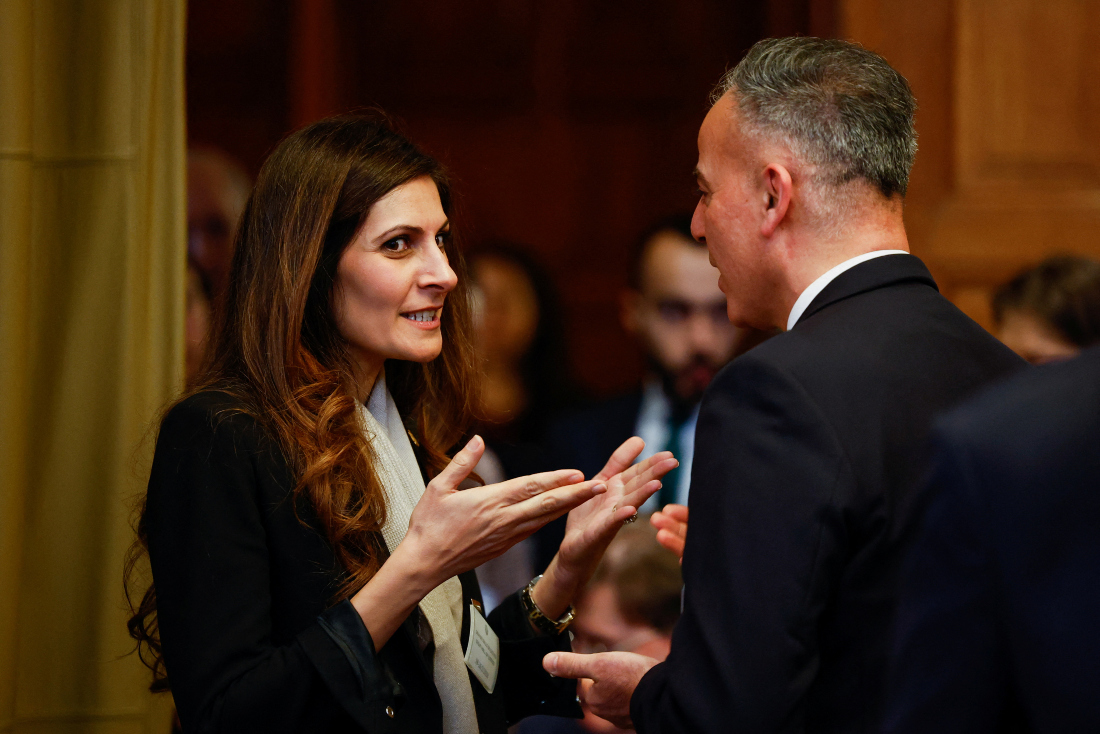THE HAGUE: The United States said a call for withdrawal of Israel from occupied territories in Palestine requires to take into account Israel's real security needs speaking at the International Criminal Court of Justice (ICJ) on Wednesday.
The US is working to find a resolution of peace for Israeli's and Palestinians and to pave the wave for the establishment of a Palestinian state, added the representative.
Egypt, UAE and Cuba were among the speakers that appeared at the third day of hearings at the ICJ, also known as the World Court, in the Hague.
Egypt’s legal counselor Jasmine Moussa said Israel’s ongoing ‘onslaught’ on Gaza killed over 29,000 Palestinians and displaced 2.3 million people in violation of international law.
“It is shocking that some states do not want the court to render its legal opinion. What message does this send on their respect for international justice and the rule of law?” asked Moussa.
Egypt’s Jasmine Moussa said the Middle East “yearns for peace and stability” and a “comprehensive and lasting resolution to the Palestinian-Israeli conflict”.

Legal Advisor of the Cabinet of the Minister of Foreign Affairs, Jasmine Moussa attends ICJ public hearing to allow parties to give their views on the legal consequences of Israel's occupation of the Palestinian territories. (Reuters)
UAE representative Lana Nusseibeh said the viability of peace and an independent Palestinian state are imperiled by Israel’s violations which have risen sharply recently.
The UAE is confident that the court will determine the legal consequences of Israel's violations of international law against the Palestinian people in Gaza and the West Bank.
“According to the United Nations, 2023 has been the deadliest year for Palestinians in the West Bank,” said Nusseibeh.
Nuseibeh said Israel must cease all policies and practices that impede the exercise of Palestinian right to self determination.
Israel must ensure freedom of access to holy places and respect the legal and historic status quo of these areas, added Nusseibeh.
The UAE concluded their statement by calling for a ceasefire in Gaza and criticized the UN’s Security Council’s failure to adopt a peace resolution.
Russia will also present arguments on Wednesday in proceedings at the UN’s highest court examining the legality of Israel’s occupation of the Palestinian territories.
The ICJ, also known as the World Court, was asked in 2022 by the UN General Assembly to issue a non-binding opinion on the legal consequences of the occupation.
Israel, which is not taking part, said in written comments that the court’s involvement could be harmful to achieving a negotiated settlement. Washington in 2022 opposed the court issuing an opinion and is expected to argue on Wednesday that it cannot rule on the occupation’s lawfulness.
More than 50 states will present arguments until Feb. 26. Egypt and France were also scheduled to speak on Wednesday.
On Monday, Palestinian representatives asked the judges to declare Israel’s occupation of their territory illegal and said its opinion could help reach a two-state solution.
On Tuesday, 10 states including South Africa were overwhelmingly critically of Israel’s conduct in the occupied territories, with many urging the court to declare the occupation illegal.
The latest surge of violence in Gaza that followed Hamas’ Oct. 7 attacks in Israel has complicated already deeply-rooted grievances in the Middle East and damaged efforts toward finding a path to peace.
The ICJ’s 15-judge panel has been asked to review Israel’s “occupation, settlement and annexation ... including measures aimed at altering the demographic composition, character and status of the Holy City of Jerusalem, and from its adoption of related discriminatory legislation and measures.”
The judges are expected to take roughly six months to issue their opinion on the request, which also asks them to consider the legal status of the occupation and its consequences for states.
Israel ignored a World Court opinion in 2004 when it found that Israel’s separation wall in the West Bank violated international law and should be dismantled. Instead, it has been extended.
The current hearings could increase political pressure over Israel’s war in Gaza, which has killed about 29,000 Palestinians, according to Gaza health officials, since Hamas attacked Israel on Oct. 7.
Israel captured the West Bank, Gaza and East Jerusalem — areas of historic Palestine which the Palestinians want for a state — in the 1967 conflict. It withdrew from Gaza in 2005, but, along with neighboring Egypt, still controls its borders.
Israeli leaders have long disputed that the territories are formally occupied on the basis that they were captured from Jordan and Egypt during the 1967 war rather than from a sovereign Palestine.
With inputs from Reuters


























